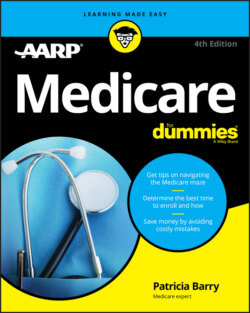Читать книгу Medicare For Dummies - Barry Patricia, Patricia Barry - Страница 80
Recognizing that you may be liable for a Part D surcharge, even without a Part D plan
ОглавлениеI’ve heard from people who are utterly outraged to be hit with the higher-income Part D surcharge when, they point out, they don’t even get their prescription drug coverage from Medicare! Instead, their meds are covered under retiree benefits provided by former employers. When I checked with Medicare, I found (to my surprise) that yes, it’s true: Some people in retiree plans can be required to pay the Part D surcharge. So what’s going on here?
“A lot of people think they have [purely] retiree drug coverage, but the employer actually contracts with a Part D plan to provide it,” Medicare officials say. This setup means that people aren’t always aware that they’re receiving Medicare drug coverage for which the Part D surcharge applies.
Here’s how to tell whether you have to pay the Part D surcharge:
If you’re enrolled in a regular Part D drug plan or a Medicare Advantage health plan that includes drug coverage — in other words, a plan that you’ve chosen and paid for yourself and that has nothing to do with retiree benefits — the issue is quite clear. If your income makes you liable for the surcharge, you pay that amount on top of your plan’s premium.
If your former employer’s retiree health-care plan receives a retiree drug subsidy from the government, you aren’t liable for the surcharge.
If your former employer’s retiree health plan contracts with Medicare to provide Part D coverage — either through a Part D drug plan or through a health-care plan that includes Part D coverage — you’re liable for the surcharge if your income is above the specified level.
If you have drug coverage through a retiree plan, how do you know whether you’re liable for the surcharge? The plan may inform you, or the first clue may come when the Social Security Administration sends a letter that says so. In that case, call your retiree plan to check it out — and also ask whether you or your former employer will pay the surcharge.
If the retiree plan pays your Part D premiums (as some plans do), the employer may choose to pay any surcharges as well but isn’t obliged to. But be aware that even if your former employer springs for the surcharge, you’re still legally responsible for ensuring that it’s paid each month.
